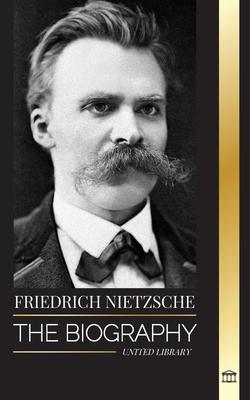Dive into the profound life and groundbreaking ideas of Friedrich Nietzsche, the German philosopher, cultural critic, and literary genius, in 'Friedrich Nietzsche: The Biography of a Cultural Critic that Redefined Power, Will, Good and Evil.' Born on October 15, 1844, Nietzsche embarked on a remarkable intellectual journey that would revolutionize contemporary philosophy and shape the course of human thought. Beginning his career as a classical philologist, Nietzsche quickly transitioned to philosophy and astounded the academic world by becoming the youngest person ever to hold the Chair of Classical Philology at the University of Basel at the tender age of 24. However, relentless health issues plagued Nietzsche, leading to his resignation in 1879.
Despite his struggles, Nietzsche dedicated the following decade to completing the core writings that would establish him as one of the most influential thinkers of all time. Tragedy struck Nietzsche in 1889 when, at the age of 44, he experienced a mental collapse that left him incapacitated, paralyzed, and likely suffering from vascular dementia. Supported by his mother and later his sister, Elisabeth Frster-Nietzsche, Nietzsche spent his remaining years under their care until his death in 1900, succumbing to pneumonia and multiple strokes.
In 'Friedrich Nietzsche: The Biography of a Cultural Critic that Redefined Power, Will, Good and Evil, ' readers will explore Nietzsche's vast body of work, which spans philosophical polemics, poetry, cultural criticism, and fiction, revealing his penchant for aphorism and irony. Prominent elements of Nietzsche's philosophy, such as his radical critique of truth in favor of perspectivism, his genealogical critique of religion and morality, and his aesthetic affirmation of life in the face of the "death of God" and nihilism, are meticulously examined.
This captivating biography unravels Nietzsche's revolutionary concepts, including the bermensch (Overman) and the doctrine of eternal return, and delves into his preoccupation with the individual's creative power to challenge societal norms and embrace new values. It explores Nietzsche's profound insights into art, music, tragedy, religion, and culture, drawing inspiration from Greek tragedy and influential figures like Zoroaster, Arthur Schopenhauer, Ralph Waldo Emerson, Richard Wagner, and Johann Wolfgang von Goethe. Furthermore, 'Friedrich Nietzsche: The Biography of a Cultural Critic that Redefined Power, Will, Good and Evil' sheds light on the controversial manipulation of Nietzsche's unpublished writings by his sister, Elisabeth, who distorted his opinions to align with her ultranationalist ideology. It also discusses the subsequent efforts by scholars like Walter Kaufmann, R. J. Hollingdale, and Georges Bataille to defend Nietzsche's true intent and provide corrected editions of his works.
This immersive biography is a must-read for both enthusiasts and scholars seeking a comprehensive understanding of Nietzsche's transformative life and enduring impact. It examines how his ideas have resonated throughout the 20th and early 21st centuries, influencing philosophy, art, literature, poetry, politics, and popular culture. 'Friedrich Nietzsche' is a captivating exploration of a brilliant mind that forever altered the way we perceive power, will, good, and evil.
